Salome in modern paintings
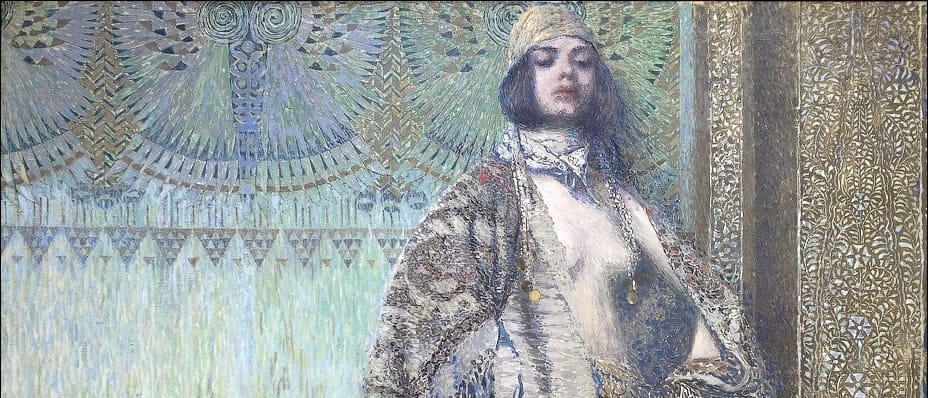
Early Christian accounts of Salome do not feature any erotic dances, but by medieval times she has most of her clothes off and she is a dangerous temptress. That reputation stayed with her through the centuries, and it's fair to say she was always very popular. Gustave Flaubert, Jules Massenet and Oscar Wilde were fans, and it was Wilde's play Salome that popularized Dance of the Seven Veils.
The Salome shown below was painted by Bavarian painter Franz von Stuck in 1906, when she was very much in vogue again because of Mahler's opera the previous year. Presumably, she is winding up the Dance of the Seven Veils at this point. Von Stuck's paintings would later be admired by Hitler.
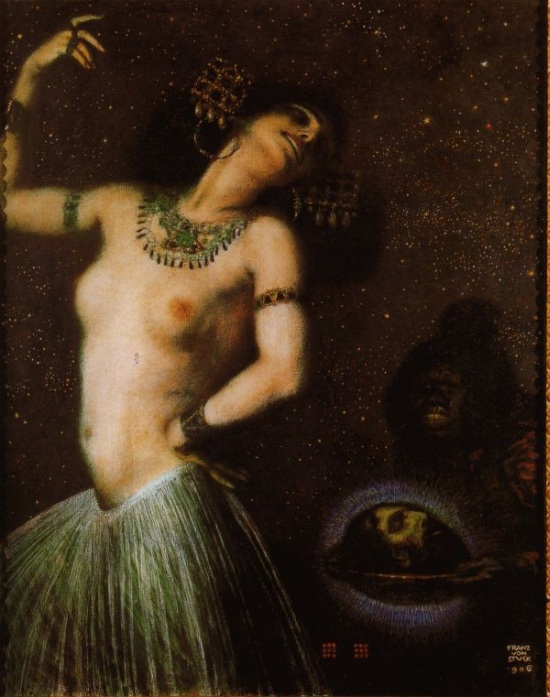
Henri Regnault's 1870 version is below, but it also seems to be without a head. She's waiting for it? Regnault was killed shortly afterwards in the Franco-Prussian War.
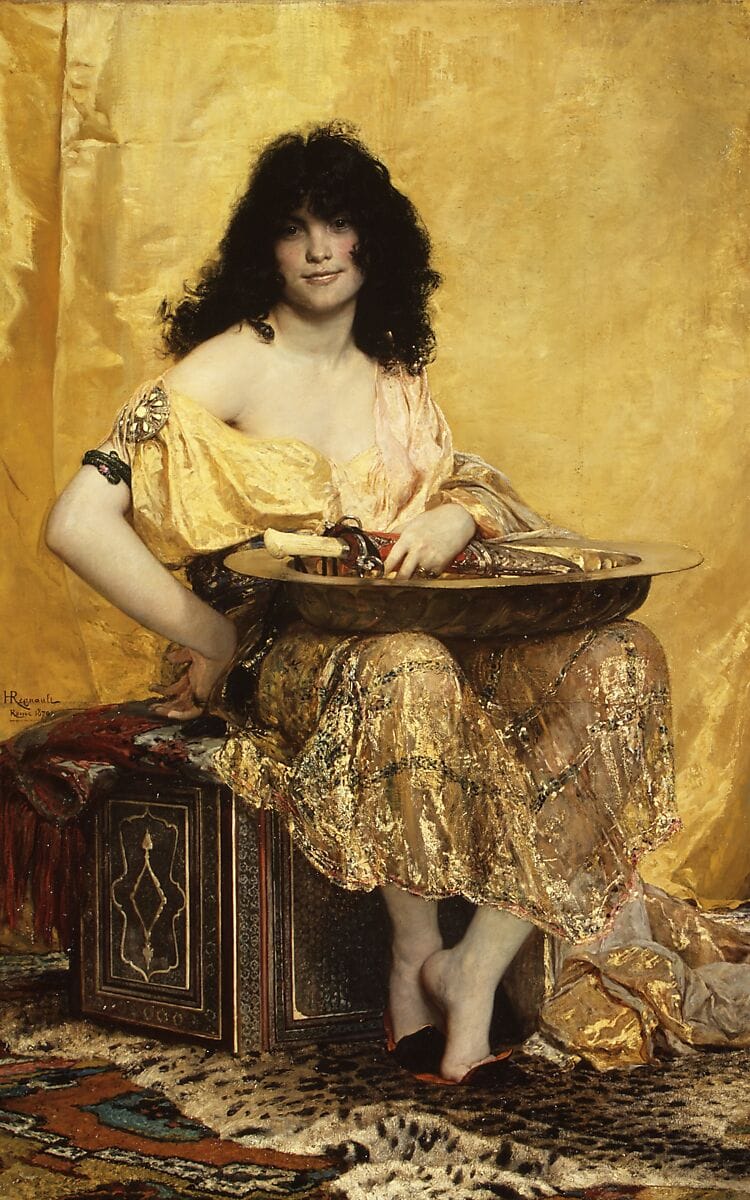
This is one of Gustave Moreau's many Symbolist contributions to the Salome genre, The Apparition, in 1876:
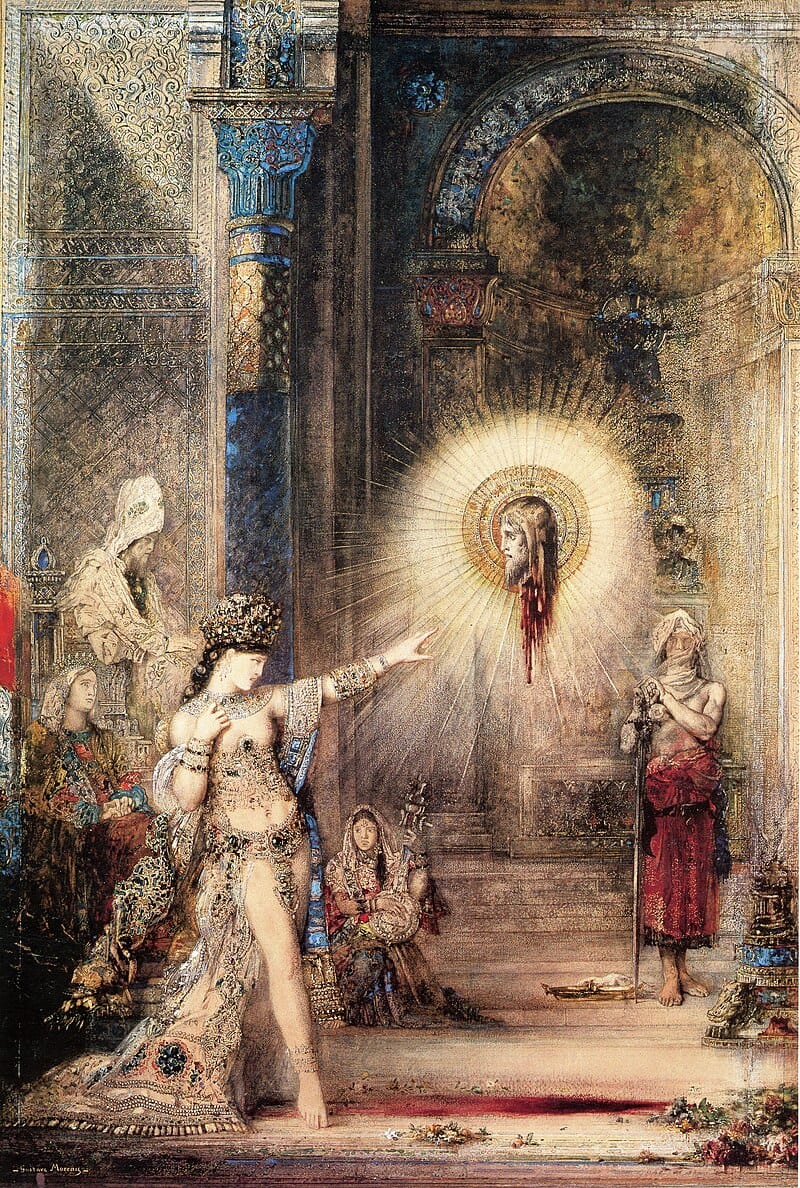
A Salome variant is powerful Roman leader Fulvia with the head of Cicero. The subject interested Russian painter Pavel Svedomsky in 1898. Fulvia, who was Mark Antony's wife, has stuck her golden pins into the severed head of Cicero, after Antony ordered his killing in 43 BCE. Maybe this is where Salome (or the Gospel writers) got the idea from.
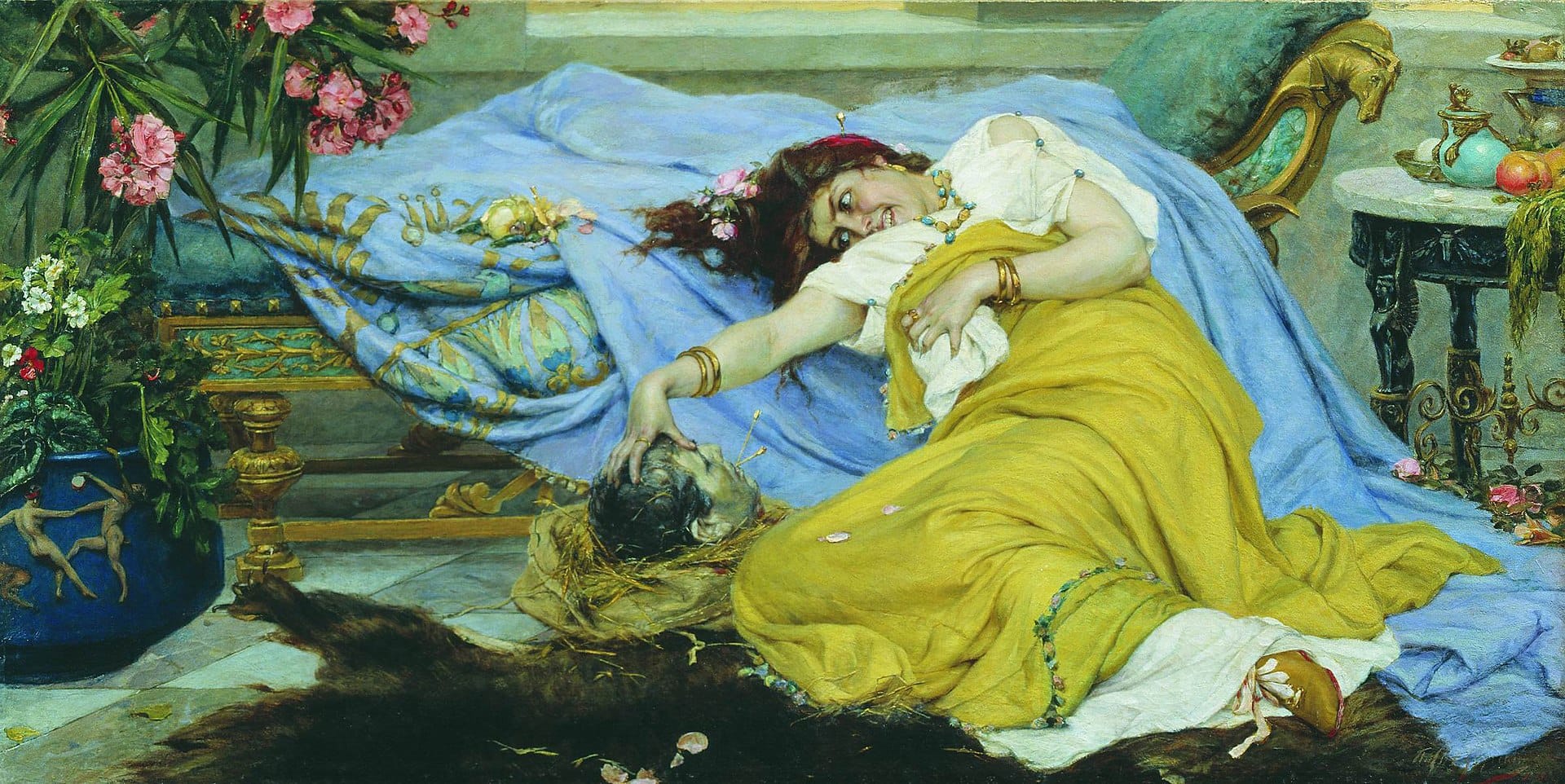
Two other contemporary views of Salome:
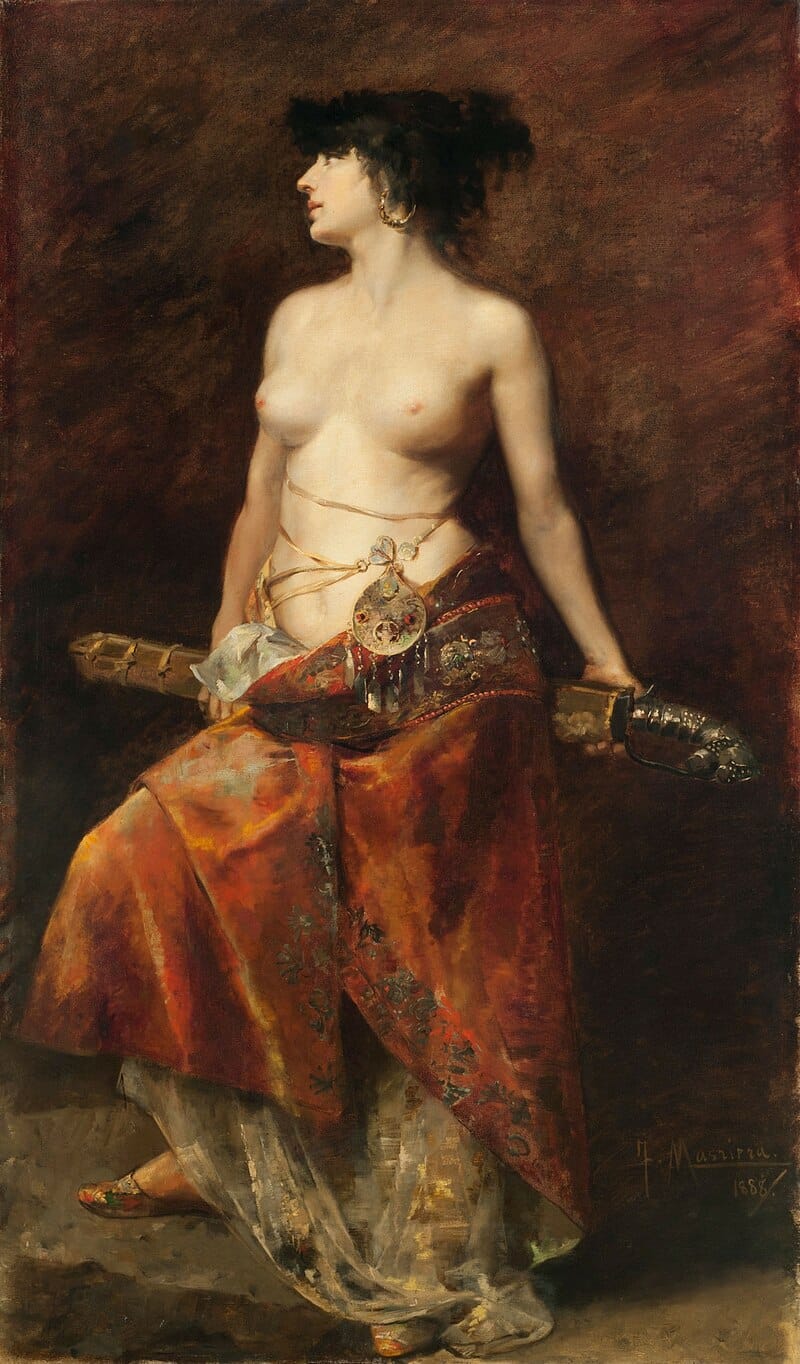
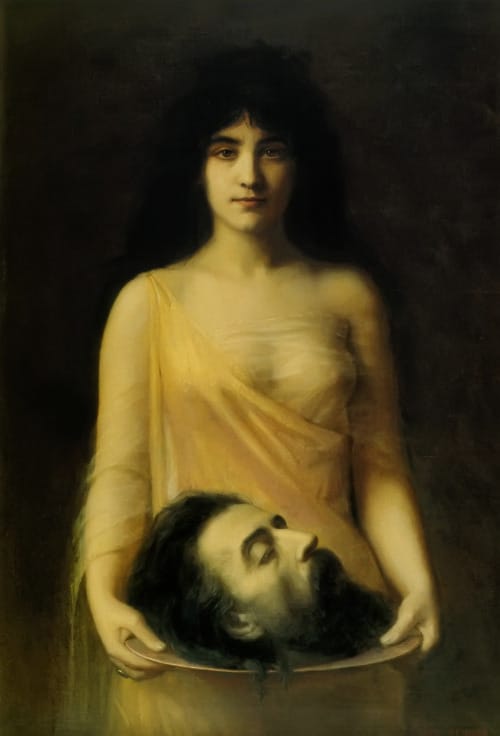
Also check out Klimt here.
